Enhancing institutional capacity of public authorities and stakeholders and efficient public administration.
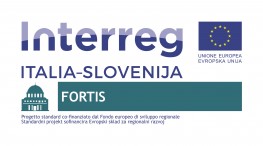
The FORTIS project intended to promote institutional cooperation through joint innovative solutions for citizenship aimed, on the one hand, at improving and promoting cross-border public transport services in favor of sustainable and efficient mobility, on the other, promoting the exchange of experiences and harmonization of the civil motorisation procedures.
One of the main reasons limiting the harmonization of services and legislation in the cross-border area is the lack of cooperation and institutional dialogue between the main regional stakeholders. As a consequence, citizens of border areas experiment daily difficulties in accessing public services and in managing their administrative practices. To this end, the FORTIS project intended to identify innovative solutions to facilitate lives of citizens of cross-border areas and to promote institutional dialogue, through: the improvement of local public transport systems with a view to cross-border integration and exchange of good administrative practices in relation to different civil motorization legislation. Following a gap analysis, specific pilot actions have been tested experimental solutions to improve services and dialogue, allowing the establishment of a stable institutional cooperation network.
The FORTIS project developed an (1) action plan to optimize public transport connections in the cross-border area and to promote institutional dialogue for mutual knowledge of vehicle registration procedures. Then, it has been (2) defined and implement pilot activities to assess the proposed innovative solutions. Institutions involved, together with the key operators, was able to support cross-border mobility through a (3) memorandum of understanding with the aim of extending and maintaining the tested initiatives. On the other hand, the competent authorities acquired (4) mutual knowledge of the procedures relating to civil motorisation, which has been collected in a toolbox made available to citizens. The cooperation network established within the FORTIS project confirmed and maintained beyond the duration of the project thanks to the signature of (5) a further memorandum of understanding.
Lead Partner
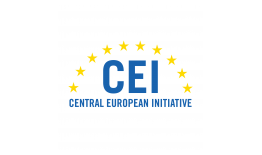
Project partner 1
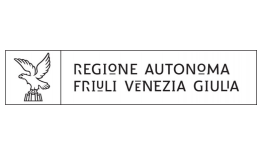
Project partner 2
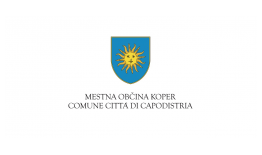
Project partner 3
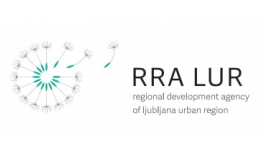
RRA-LUR is a public body responsible for the preparation, coordination and implementation of the regional development programs of the 26 municipalities in the urban region of Ljubljana (LUR). As technical support to regional decision-makers and advisory bodies, RRALUR oversees the strategic planning of the region through the coordination and projects development in several different fields, such as economy, traffic, infrastructure, environment, rural and territorial development. RRA-LUR will share its experiences, studies, knowledge bases and action plans to support the MUSE partnership on drafting an integrated transport strategy, working on the integration of local energy concepts with sustainable mobility, the increase in skills of the main stakeholders of the region (municipalities, transport operators, policy planners), the implementation of a pilot project and the improvement of cooperation with Italian universities and partners. RRA-LUR will also develop a document that will define the methodology for pilot development and coordination, defining the criteria for monitoring the progress and evaluating the results in order to produce a final report.
Project partner 4
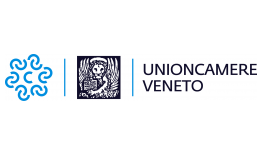
| Communication strategy Communication strategy.pdf ( 1 byte, published on 23 June, 2023 - 12:33 ) | |
| Final publicaion pubblicazione finale_FORTIS.pdf ( 3 bytes, published on 23 June, 2023 - 12:33 ) | |
| First newsletter newsletter - en.pdf ( 1 byte, published on 23 June, 2023 - 12:33 ) | |
| Second newsletter newsletter n. 2 - en.pdf ( 832 bytes, published on 23 June, 2023 - 12:33 ) | |
| Third newsletter newsletter 3 - en.pdf ( 1 byte, published on 23 June, 2023 - 12:33 ) | |
| Action plan to Promote the Institutional Dialogue. FORTIS 3.1.2.6 deliverable_FVG_en.pdf ( 486 bytes, published on 23 June, 2023 - 12:33 ) | |
| ACTION PLAN FOR STREAMLINING PUBLIC TRANSPORT CONNECTIONS IN CROSS BORDER AREAS D.3.1.2.3_CB_Action_Plan_FINALISED_EN.pdf ( 2 bytes, published on 23 June, 2023 - 12:33 ) |
Main objectives:
Promote institutional dialogue and activities coordination for:
Main activities and achievement
Testing activities:
Conclusions
The cross-border area encompassing the extreme north-eastern fringes of Italy and the south-western territory of Slovenia is characterized as a historically and geographically homogenous region in which cultural and economic ties have been further and steadily strengthened over the past two decades.
In the face of the gradual concretisation of a transnational socio-economic continuum, however, the integration and connection of local public transport systems operating on both sides of the border remains a long way off. Indeed, even today, it is still difficult for both border-crossers and tourists to travel easily between Trieste and Ljubljana by public transport. The connection also remains complex between the two main coastal centres, Koper and Trieste, not to mention the possibility of travelling between the smaller centres scattered on both sides of the border on the Karst plateau. This evidently leads to an increasing need, especially for the resident population, but also for travelers, to resort to the use of private cars, thus causing a significant environmental impact as well as considerable economic and social costs.
The project was conceived as a practical and effective device, capable of promoting immediately applicable solutions to facilitate the mobility of people, such as the extension of the bus service between Koper and Trieste or integrated ticketing between rail and local transport on the Ljubljana - Trieste route, as well as encouraging sustainable forms of transport through the development of a study on the potential of a permanent maritime line connecting Koper with Muggia and Trieste.
On the other hand, the project has focused a great deal of effort and qualified resources on strengthening institutional relations between the authorities and bodies that are responsible for spatial planning and the conception and management of mobility policies in Friuli Venezia Giulia and Slovenia. In fact, once the extreme pandemic emergency had passed, FORTIS promptly supported the efforts of decision-makers in both the Friuli Venezia Giulia region and Slovenia in order to re-launch a fruitful dialogue aimed at aligning policies and oriented towards finding practical and shared solutions to the problems of sustainable mobility within a cross-border context. Particularly effective examples of this are the joint activities in the fields of civil motorization and heavy traffic control, which have seen a series of field experiments and the exchange of good practices, as well as the activities in support of integrated ticketing, which have made it possible to convey to the joint working tables set up between the Friuli Venezia Giulia region and the Republic of Slovenia the vision and proposals of local stakeholders regarding the design and implementation of an integrated ticket connecting Trieste and Ljubljana offering additional services to travellers.
Aware of the challenges that still have to be met in the short and medium term, the partnership of the FORTIS project is committed to supporting the main actors and stakeholders in the definition of policies and practical solutions that can foster territorial development through more efficient, effective and sustainable mobility for the benefit of the population of the cross-border area and the travellers who wish to visit.
EN
Main objectives:
Promote institutional dialogue and activities coordination for:
Main activities and achievement
Testing activities:
Conclusions
The cross-border area encompassing the extreme north-eastern fringes of Italy and the south-western territory of Slovenia is characterized as a historically and geographically homogenous region in which cultural and economic ties have been further and steadily strengthened over the past two decades.
In the face of the gradual concretisation of a transnational socio-economic continuum, however, the integration and connection of local public transport systems operating on both sides of the border remains a long way off. Indeed, even today, it is still difficult for both border-crossers and tourists to travel easily between Trieste and Ljubljana by public transport. The connection also remains complex between the two main coastal centres, Koper and Trieste, not to mention the possibility of travelling between the smaller centres scattered on both sides of the border on the Karst plateau. This evidently leads to an increasing need, especially for the resident population, but also for travelers, to resort to the use of private cars, thus causing a significant environmental impact as well as considerable economic and social costs.
The project was conceived as a practical and effective device, capable of promoting immediately applicable solutions to facilitate the mobility of people, such as the extension of the bus service between Koper and Trieste or integrated ticketing between rail and local transport on the Ljubljana - Trieste route, as well as encouraging sustainable forms of transport through the development of a study on the potential of a permanent maritime line connecting Koper with Muggia and Trieste.
On the other hand, the project has focused a great deal of effort and qualified resources on strengthening institutional relations between the authorities and bodies that are responsible for spatial planning and the conception and management of mobility policies in Friuli Venezia Giulia and Slovenia. In fact, once the extreme pandemic emergency had passed, FORTIS promptly supported the efforts of decision-makers in both the Friuli Venezia Giulia region and Slovenia in order to re-launch a fruitful dialogue aimed at aligning policies and oriented towards finding practical and shared solutions to the problems of sustainable mobility within a cross-border context. Particularly effective examples of this are the joint activities in the fields of civil motorization and heavy traffic control, which have seen a series of field experiments and the exchange of good practices, as well as the activities in support of integrated ticketing, which have made it possible to convey to the joint working tables set up between the Friuli Venezia Giulia region and the Republic of Slovenia the vision and proposals of local stakeholders regarding the design and implementation of an integrated ticket connecting Trieste and Ljubljana offering additional services to travellers.
Aware of the challenges that still have to be met in the short and medium term, the partnership of the FORTIS project is committed to supporting the main actors and stakeholders in the definition of policies and practical solutions that can foster territorial development through more efficient, effective and sustainable mobility for the benefit of the population of the cross-border area and the travellers who wish to visit.